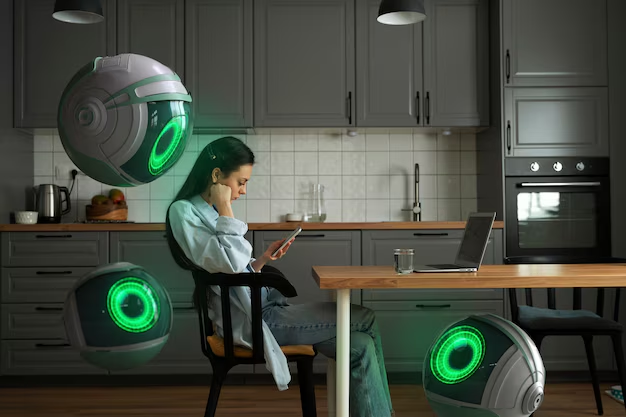The rapid development of Artificial Intelligence (AI) and automation technologies is profoundly transforming industries and reshaping everyday life. These advancements are ushering in an era of efficiency, productivity, and innovation, fundamentally altering the way businesses operate and individuals engage with the world. From manufacturing and healthcare to retail and transportation, AI and automation are driving major changes across various sectors, enhancing operations and creating new opportunities for growth and improvement.
AI and Automation in Industry
In the industrial sector, AI and automation have led to significant advancements in production efficiency and cost reduction. Robotics, machine learning, and AI-powered systems are being integrated into manufacturing plants to automate repetitive tasks such as assembly, packaging, and quality control. This has not only increased productivity but also minimized human errors, reducing waste and improving the quality of products.
AI is also making strides in predictive maintenance, which allows businesses to anticipate equipment failures before they occur. By using AI to analyze data from machinery, companies can predict when a machine is likely to break down, allowing for timely repairs and avoiding costly downtime.
AI and Automation in Healthcare
The healthcare industry is also benefiting from the power of AI and automation. AI is being used to develop advanced diagnostic tools, making it easier to detect conditions like cancer, heart disease, and neurological disorders earlier and more accurately. Automation is playing a key role in the operational aspects of healthcare, with robotic surgery systems, AI-powered diagnostics, and automated administrative tasks improving efficiency in hospitals and clinics.
Additionally, AI-driven telemedicine platforms are making healthcare more accessible, enabling patients to consult doctors remotely and receive personalized care recommendations based on data-driven insights.
AI and Automation in Daily Life
Beyond the workplace, AI and automation are becoming increasingly integrated into everyday life. Smart home devices, powered by AI, allow people to control their home environment with voice commands or mobile apps, making tasks like adjusting the thermostat, controlling lighting, and even managing security systems more convenient.
Transportation is another area where AI and automation are transforming daily life. Autonomous vehicles, drones, and AI-powered traffic management systems are making transportation safer and more efficient. Self-driving cars, for instance, have the potential to reduce accidents caused by human error, while AI-enabled traffic systems can help reduce congestion and optimize route planning.
Frequently Asked Questions
- What is AI and how does it work? AI is the simulation of human intelligence processes by machines. It involves machine learning, neural networks, and algorithms that enable systems to learn from data and make decisions.
- How is automation changing industries? Automation reduces the need for manual labor by using machines and AI-driven systems to perform repetitive tasks, improving efficiency, quality, and safety.
- Will AI take away jobs? While AI may replace certain tasks, it also creates new jobs in technology, data analysis, and machine management, fostering new career opportunities.
- What industries are most impacted by AI and automation? AI and automation are transforming industries like manufacturing, healthcare, transportation, retail, and logistics, enhancing efficiency and productivity.
- Can AI help in healthcare? Yes, AI is being used to assist with diagnosis, personalized treatment plans, and automation of administrative tasks in healthcare settings.
- How is AI improving daily life? AI is embedded in everyday devices like smartphones, home assistants, and autonomous vehicles, simplifying tasks and enhancing convenience.
- What are the risks associated with AI and automation? Some risks include job displacement, ethical concerns around privacy, and reliance on machines for decision-making without human oversight.
Conclusion
AI and automation are driving revolutionary changes in industries and daily life, enhancing productivity, improving quality, and creating new opportunities across various sectors. As these technologies continue to evolve, they will play an increasingly central role in shaping the future of work and human interaction with technology.

